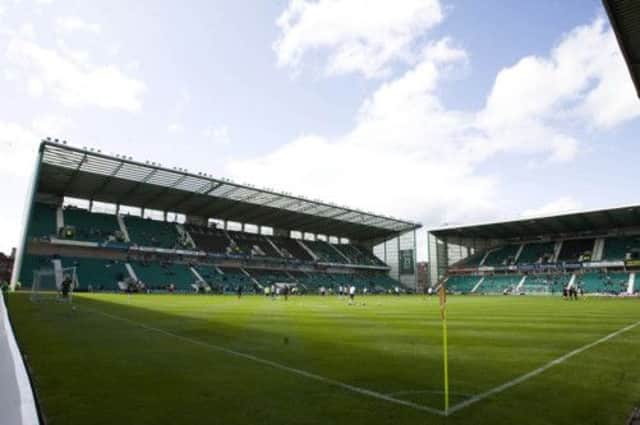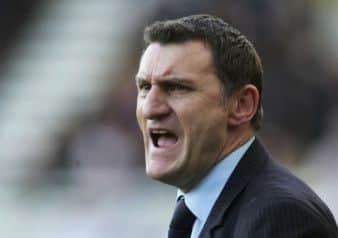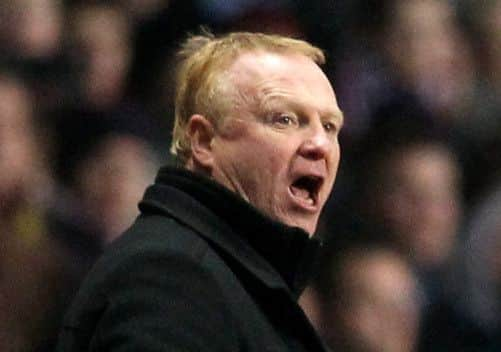Stuart Bathgate: Hibs job is an alluring prospect


Football clubs tend not to take out ads whenever they have a key vacancy, preferring to do their recruiting behind the scenes. But, if Hibernian were to advertise for a new manager, they would be entirely justified in pressing that slogan into service.
Whatever way you look at it, for anyone with a serious interest in the Hibs job there is unlikely to be a better opportunity than this for decades. That may be bad news for young managers such as Ian Murray, who will probably have to continue cutting their teeth in the lower leagues for several years before being considered as successors to Pat Fenlon. But for more experienced men such as Terry Butcher, this chance, if it comes along, is surely too good to turn down. Former employees such as Alex McLeish and Tony Mowbray might even consider whether this is a fertile time to pick up where they left off.
Advertisement
Hide AdAdvertisement
Hide AdAll the usual disincentives are absent. Several positive reasons are in place. There could hardly be a more inviting prospect at this level of Scottish football. Notwithstanding the legendary parsimony of club chairman Rod Petrie, Hibs can and will pay a decent salary to the successful candidate – certainly more than Butcher is currently on at Inverness Caledonian Thistle. Higher salaries normally come accompanied by greater risk, but not in this case.


There is one simple reason for that. After going through ten managers in the past 16 years, Hibs need continuity. They want someone to stay in his post for the medium to long term, and they will not make impossible demands on him.
There will be no ultimatum about winning trophies or else. There will be an expectation – perhaps even no more than a hope – that the new boss establishes the team in the top six. But, in the circumstances, that should be achievable with relative ease.
Rangers will not be around in the Premiership next season. Nor, most likely, will Hearts. Those two teams have habitually outperformed Hibs in recent years and, in their absence, it will be all the more feasible for the Easter Road club to get into the upper half of the top flight.
Celtic are beyond reach but Hibs should have every other club in their sights. Their purchasing power is greater than anyone else’s outwith the Old Firm at present and the new manager will be allowed to recruit sensibly.


The whole strategy under Petrie, as determined by club owner Sir Tom Farmer, is to place security first. Maintaining the club on a stable financial footing is of paramount importance. They will not speculate in the hope of accumulating trophies.
So, while money will be there for a move into the transfer market, the manager will not be pressurised into identifying and signing a superstar. Instead, he will be encouraged to recruit players for modest amounts. Players who, when brought together as a team, will be better than the sum of their parts.
What is more, an assessment of the current squad suggests that not too much rebuilding will be required before there is a significant improvement in results. True, some of Fenlon’s signings have been unsuccessful, but others have made Hibs look more competitive. Close-season arrival Paul Heffernan, for example, has a sharp eye for goal, and links up intelligently with midfielders such as Liam Craig and Scott Robertson.
Advertisement
Hide AdAdvertisement
Hide AdThere are several decent young players, too, already in the squad. Defender Jordon Forster and forwards Danny Handling and Ross Caldwell should arguably have been given longer runs in the first team already. Another forward, Alex Harris, would be a first-team regular at the moment but for injury. This Hibs squad are far from being world-beaters, and one or two of the members, such as James Collins and Rowan Vine, have a lot to prove. But, taken as a whole, they are a serviceable bunch who, with a bit of expert leadership, should be up there challenging for a European place.
In other words, no major surgery will be required. If anything, there were too many changes during Fenlon’s reign of nearly two years. In this respect, too, stability will be the watchword of the new manager.
And of course, it is Petrie, perhaps more than anyone, who needs that stability. His credibility has already been damaged by some of his choices as manager. Another failure and the discontent of the fans will not be so easy to assuage.
The need for stability was one reason why Fenlon was allowed to stay in his job for as long as he did, despite presiding over two of the most humiliating results in Hibs’ history – the Scottish Cup final defeat by Hearts last year and the Europa League loss to Malmo a few months ago.
Earlier managers who were forced to quit for far less can only have looked on enviously as he held on to his post, insisting all the time that he would know when it was time to quit. From day one, the former Bohemians boss liked to present himself as hard done by and, even at his final press conference last Friday, he was still insisting he should have been given more credit for what he had achieved.
In reality, as well as being cut more slack than his immediate predecessors, Fenlon also enjoyed circumstances that were almost as propitious then, in November 2011, as they are now. The only real difference was that Hibs were in relegation trouble when he arrived. Now they are seventh, in no danger of going down this season and well placed, as we have said, to remain in or close to the upper half of the Premiership for some seasons to come.
Apart from that, all the factors were in place for Fenlon. A decent budget, a chairman in whose interest it was to be supportive and an underachieving squad. The conditions were there for him to fare far better than he did.
The squad is stronger now, the threats are fewer, the opportunities greater. A more able manager could hardly fail.